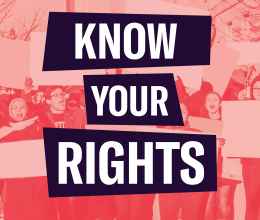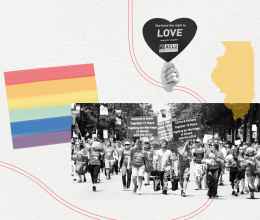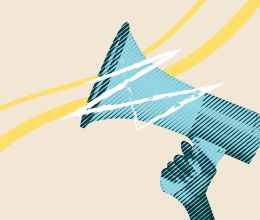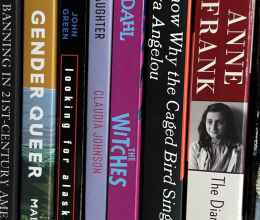This morning's edition of NPR's Morning Edition brought a story about the backlash against individuals and businesses that donated to California's Prop 8 campaign. Protests and boycotts have been organized against some of the folks who donated money to the "Yes on Prop 8" campaign, which successfully passed a constitutional amendment to ban gay marriage, and nullify the marriages of thousands of Californians. What struck me (over and above the obvious irony of those who supported a campaign to take away the rights of others camplaining about their rights being violated) was the conclusion of the piece:
"This seems to be an effort to indiscriminately go after anyone who contributed money, regardless of their position on gay issues," says Frank Schubert, spokesman for the Yes on 8 campaign. He says the backlash has endangered individuals who exercised their constitutional right to freedom of religion.
"I think that overall the attempt here is to intimidate and punish people so that they are less inclined to speak out in the future," he says.
And it's given rise to charges that as gay rights advocates tried to change public opinion, some stepped over the line and turned their protest into a witch hunt.
The folks being boycotted, or receiving nasty letters, feel that their right to exercise the freedom of religion is being threatened somehow. But what they miss (and perhaps the reporter, Karen Grigsby Bates is missing as well) is that boycotts and writing letters are an exercise of freedom too. Indeed the ability to criticize, to speak out or to take your dollars elsewhere are important signs that free speech, and freedom of religion are alive and well.
The First Amendment doesn't guarantee that there will be no consequences for exercising your religion or expression or assembly. If a restaurant owner belongs to the KKK, the public is free to take that into account when deciding where to eat, or whether to mount a picket outside their establishment. The First Amendment guarantees that the government won't interfere with the people's right to exercise their freedoms of speech, religion, press, assembly and petition no matter the content of their speech. It doesn't protect people from being offended by what they hear, and it definitely doesn't prevent them from expressing themselves as well.
Full Disclosure: The ACLU is one of the parties challenging Prop 8 before the California Supreme Court. Oral Arguments are scheduled for today, March 5th at 11 am CST. You can listen to the proceedings live at: http://www.courtinfo.ca.gov/courts/supreme/highprofile/prop8.htm




